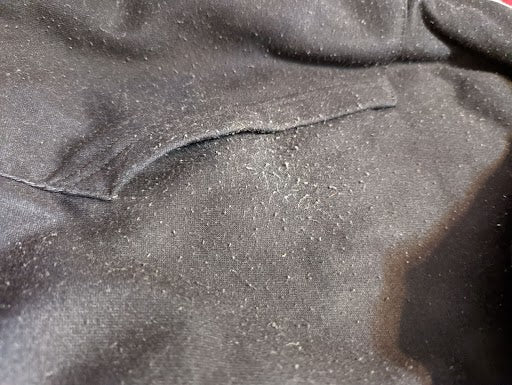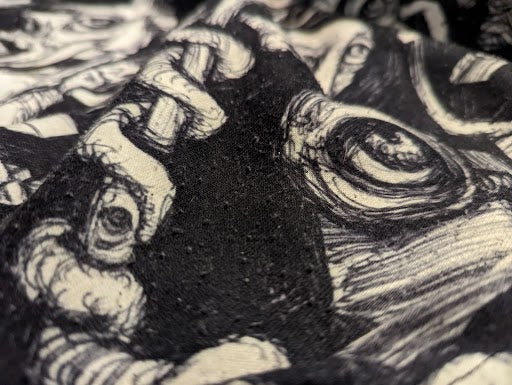
Pilling?
The process of forming firm small balls of lint that form on fabric surfaces, like clothing. This occurs naturally as result of wear and tear on the fibers. These broken fibers get tangled together over time, clumping and forming the pesky lint balls. During the washing process, these fibers can also attract loose micro threads causing process of pilling to be more noticeable. Unfortunately, pilling can occur naturally when certain clothing rubs together (e.g., backpack/purse straps, moving around on couch/seat, rough/textured surfaces, etc.)
Will washing cause pilling?
A washing machine doesn’t cause pilling on its own, but it can
speed up or worsen it. However, you can reduce the amount of pilling caused by
a washing machine by using smart tactics on laundry day. For starters, turn
clothes inside out, fasten zippers, sort by type, and use cold, gentle cycles.
-Start with removing lint from clothes and getting fuzz off sweaters before you wash. Use a lint brush, fabric shaver or even just shake garments out before putting them in the washing machine.
-Turn garments inside out so that only the inside rubs up against other garments
-Fasten zippers, buttons and hooks—rubbing against these hard objects can damage clothing fibers.
-Sort clothes by fabric type to help keep heavier fabrics from damaging lighter ones in the wash.
-Sort clothes by color—if pills are formed from contrasting fabric colors, they’ll stand out more. For example, fibers from a black sweater ending up on your white T-shirt.
-Opt for a gentle, cold water wash or even hand wash your clothes.
-Don’t overload the washing machine—if your clothes can’t move easily in the machine, they’ll rub together and cause more friction.
-Use the right amount of detergent. We recommend a Precision Pour Cap, designed to help you use the amount needed to clean, care and protect your belongings—no more, no less.
-Consider using fabric softener to help protect clothing fibers.
-When the wash is done, use a gentle, low heat dryer cycle or hang up your clothes to
air dry.
